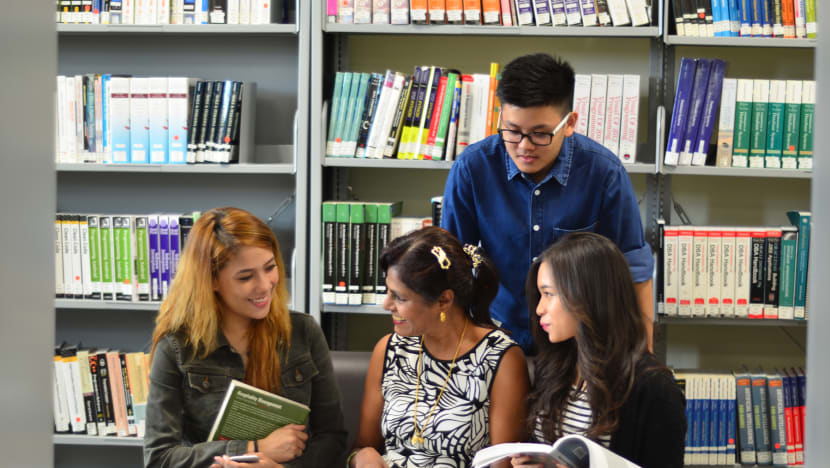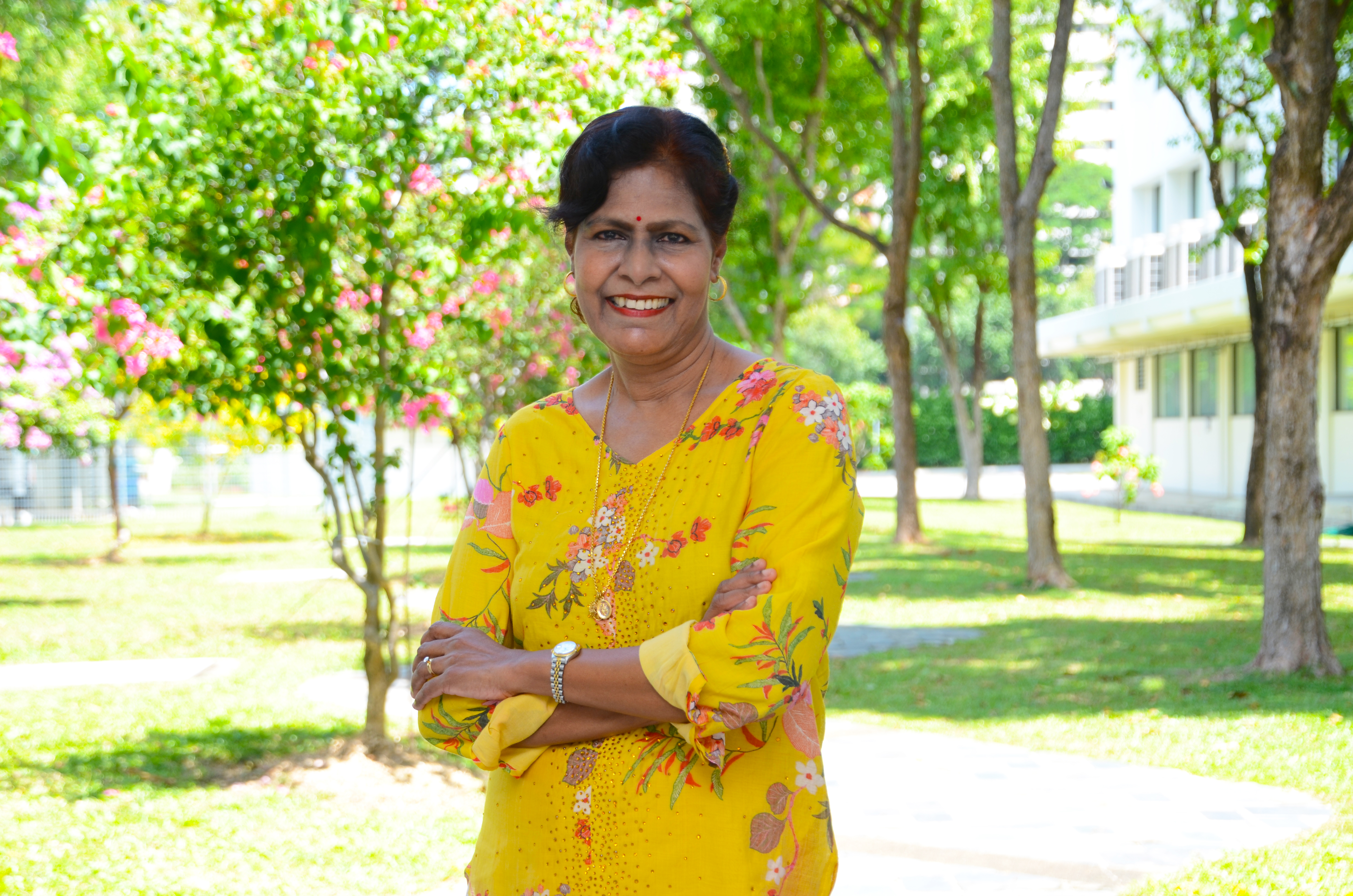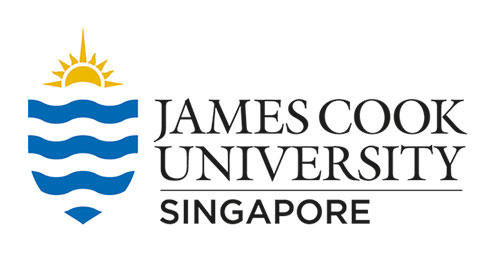A foundation programme for university and beyond
With a supportive environment and focused curriculum, James Cook University’s Pre-University Foundation Programme offers a designated pathway for students to enter JCU undergraduate programmes.

Ms Gandhimathi Sundrum, head of department of JCU’s Pathways School (Foundation & Diploma Programmes), works closely with her students to set realistic learning goals. Photos: James Cook University
With over 40 years of experience in education, Ms Gandhimathi Sundrum’s depth of knowledge is well-matched by the breadth of her experience: She has taught in both public and private institutions in Singapore as well as in Dubai, the United Arab Emirates.
While she was teaching in Dubai, Ms Sundrum was impressed by the diverse perspectives of her international students, who hailed from a wide variety of races, worldviews and cultures.
“It was a most enriching experience,” she recounted. “It broadened my own perspectives as to why people behaved the way they did, while exposing me to an array of cultural practices and norms.”
She cited her overseas stint as the reason why she decided to take up a position as a business lecturer at the Singapore campus of James Cook University (JCU), where she is now the head of department of JCU’s Pathways School (Foundation & Diploma Programmes). Launched in 2009, the eight-month-long, full-time Pre-University Foundation Programme is designed to make university education accessible and achievable for a wider range of students in the region with special entrance schemes.
Said Ms Sundrum: “I was drawn to JCU because it attracts a similarly diverse pool of students and allows me to continue to enhance my cultural knowledge and broaden my experiences while contributing meaningfully. Moreover, JCU is a highly reputable institution that provides high-quality education.”
A CURRICULUM DESIGNED FOR SUCCESS
According to Ms Sundrum, JCU’s Pre-University Foundation Programme has a specially designed curriculum that equips students with the necessary skills and orientation to seamlessly progress to JCU Band 1 undergraduate degree programmes in Business, Business and Environmental Science, Psychology and Information Technology.
The 10 subjects of the Foundation curriculum were developed with the requirements of the degree programmes in mind. They include key subjects such as Economics, Statistics and Information Technology.
“Subjects that are more broadly oriented like Critical Thinking prepare students for academic performance in disciplined, self-directed thought,” added Ms Sundrum. “Students acquire skills to recognise and avoid common pitfalls in reasoning, and to state, explain and apply criteria for writing analytical and persuasive pieces. This combined approach, which focuses on building subject-specific competencies while inculcating broader skills such as critical thinking, prepares students with the necessary knowledge and capabilities for a smooth transition to the undergraduate programmes.”
Ms Sundrum acknowledged that transitioning from a traditional high-stakes exam-based system to a module-based Australian system that uses a variety of assessment methodologies – which JCU is known for – can be challenging for some students. The Pre-University Foundation Programme offers support where it is needed.
“We often find that students might initially need more motivation and encouragement to speak up in class or submit their assignments,” she said. “We understand that it is a new system for them and make it a point to speak to all of them as individuals to express the importance of their submissions.”
In addition, students who are struggling to cope have access to JCU’s Learning Centre, where a specialist team of lecturers and student mentors is able to guide them in their studies.
EMPOWERING STUDENTS HOLISTICALLY

As students in the Pre-University Foundation Programme come from a wide range of academic backgrounds, Ms Sundrum and her team – which she describes as “highly skilled and motivated” – work hard to get to know each student and understand their individual challenges.
“My lecturers and I keep an eye out for those we feel might have difficulty keeping pace with the syllabus and take time out of our schedules to help them,” she explained. “We take pains to dispel the notion that preferring a slower academic pace is something to be ashamed of – I prefer to focus on the learning process rather than its outcomes. I believe that a programme that encourages students to learn to enjoy the academic process is the key to enhancing their success in tertiary education.”
Ms Sundrum added that as ardent supporters of mental health, she and her team make it a point to introduce students to the multitude of support options available at JCU. Occasionally, students open up to her and share how their mental health struggles cause difficulties with their studies.
“My staff and I are always prepared to work closely with these students to set realistic and deliverable goals with regards to their learning. I strongly believe that this supportive process helps to alleviate anxieties associated with moving on to a degree programme and allows some of these students to tackle tertiary education with more confidence and relish,” she said.
The personalised support they receive under her care also helps them as they progress through their degree programmes. “We are proud that about 90 per cent of our Foundation students complete the degree programmes successfully.”
Seeing her students graduate from the Pre-University Foundation Programme and move on to their undergraduate studies is her biggest reward, said Ms Gandhimathi.
Ms Sundrum advises students who are considering JCU’s Pre-University Foundation Programme to come with an open mind, in order to ready themselves for new subjects like Communication Across Cultures. She also had this to say: “Be motivated and take responsibility for your own learning. Be engaged in the learning and teaching process, be curious and ask questions, and don’t be shy to share your opinions or any issues you may have. We are here to help you.”
Visit the James Cook University website for more information on the Pre-University Foundation Programme.















